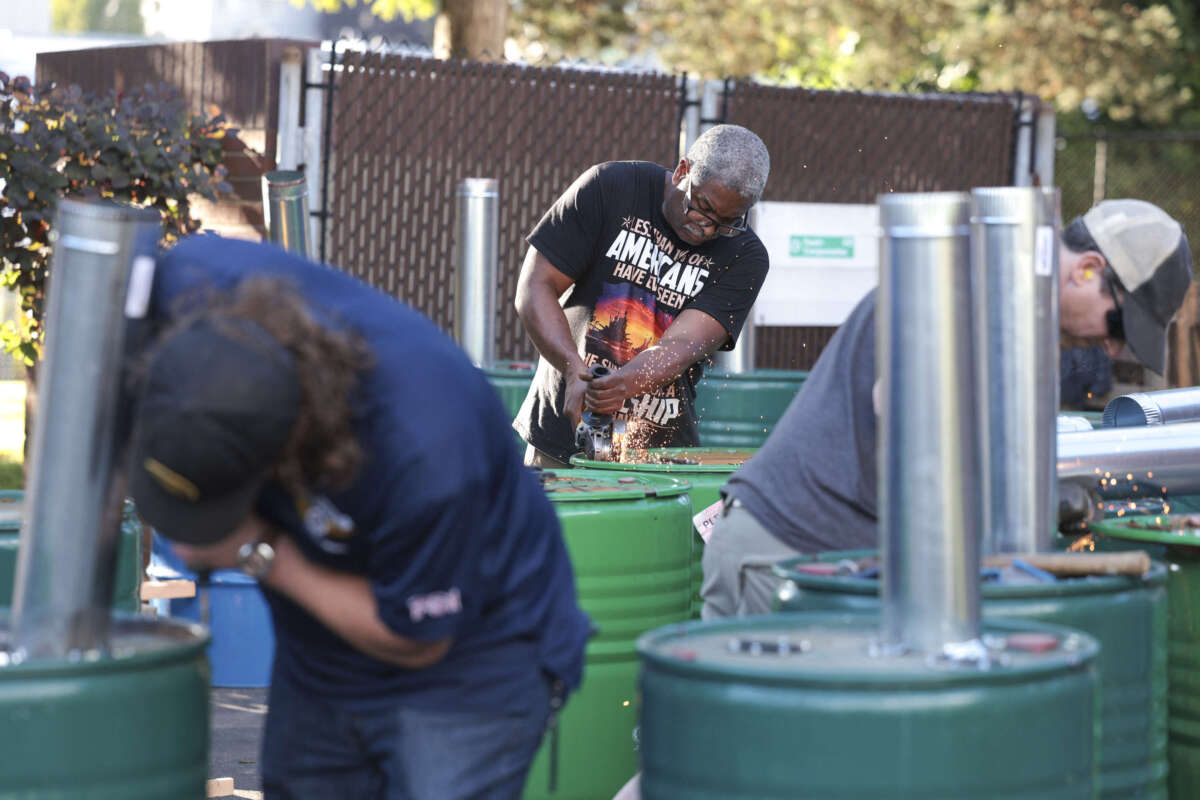Support justice-driven, accurate and transparent news — make a quick donation to Truthout today!
“We’re fighting for every family,” said the International Association of Machinists and Aerospace Workers, the union that represents about 33,000 workers at commercial plane manufacturer Boeing, on Friday, after its members voted to reject a tentative contract offered by the company and go on strike. “We’re fighting for the future of Boeing.”
The work stoppage began on Friday after 95% of workers represented by IAM District 751 voted to reject the proposed contract and 96% authorized the strike. The support of just two-thirds of the members was needed to initiate the walkout.
On Sunday, IAM District 751 President Jon Holden had expressed optimism about the tentative deal, which included a 25% raise for workers over the life of the four-year contract, a reduction in healthcare costs for employees, and an increase in Boeing’s contributions to members’ retirement plans.
But Holden said the union’s leadership would “protect and support” however members chose to proceed with the contract, whose terms fell short of the 40% raise they had originally demanded.
The last strike at Boeing lasted 57 days in 2008, and the contract that ended the strike has been extended twice since then — with the union making concessions that resulted in higher healthcare costs and an end to unionized workers’ traditional pension program.
“Workers are extremely eager to claw back lost ground on wages at a moment of crisis for Boeing,” said Lauren Kaori Gurley, labor reporter for The Washington Post.
The work stoppage comes as Boeing is working to increase airplane production amid questions about its safety standards and manufacturing capabilities following an incident in January in which a door panel blew out of a 737 Max jetliner when the plane was mid-flight.
The Federal Aviation Administration required Boeing to limit its production of 737 Max jets after the accident, until it could meet quality and safety benchmarks, but output at the company’s Renton, Washington factory “is far behind where Boeing wants,” The New York Times reported.
Joe Philbin, a mechanic at the Renton facility, told the Post that unionized workers have “a lot of leverage — why waste that?”
“This is about respect,” Holden told members Thursday night. “This is about addressing the past, and this is about fighting for our future… Boeing has to stop breaking the law, has to bargain in good faith, and we will be back at the table whenever we can get there to drive forward on the issues that our members say are important.”
At IAM District 751 Union Hall where inside thousands of Boeing employees have voted on a contract and possible strike. Outside: union members are putting together burn barrels in preparation to strike through the night. pic.twitter.com/ixsNyr08F2
— Casey Martin (@caseyworks) September 13, 2024
In addition to federal investigations into Boeing’s manufacturing and safety standards after the January incident, the U.S. Department of Justice in May said the company had failed to meet conditions of a deal that shielded it from criminal prosecution over two deadly plane crashes in 2018 and 2019.
Sen. Ed Markey (D-Mass.) said Boeing’s ability to maintain workplaces that are safe for employees — and the public that relies on the comnpany’s planes — hinges on its treatment of workers.
“There are no safe planes without union machinists. If Boeing wants to restore its safety culture, its first order of business should be ensuring its workers are fairly compensated and protected from retaliation,” said Markey, expressing solidarity with the striking machinists.
The United Auto Workers and the Communications Workers of America also expressed support for IAM District 751.
A terrifying moment. We appeal for your support.
In the last weeks, we have witnessed an authoritarian assault on communities in Minnesota and across the nation.
The need for truthful, grassroots reporting is urgent at this cataclysmic historical moment. Yet, Trump-aligned billionaires and other allies have taken over many legacy media outlets — the culmination of a decades-long campaign to place control of the narrative into the hands of the political right.
We refuse to let Trump’s blatant propaganda machine go unchecked. Untethered to corporate ownership or advertisers, Truthout remains fearless in our reporting and our determination to use journalism as a tool for justice.
But we need your help just to fund our basic expenses. Over 80 percent of Truthout’s funding comes from small individual donations from our community of readers, and over a third of our total budget is supported by recurring monthly donors.
Truthout’s fundraiser ended last night, and we fell just short of our goal. But your support still matters immensely. Whether you can make a small monthly donation or a larger one-time gift, Truthout only works with your help.
